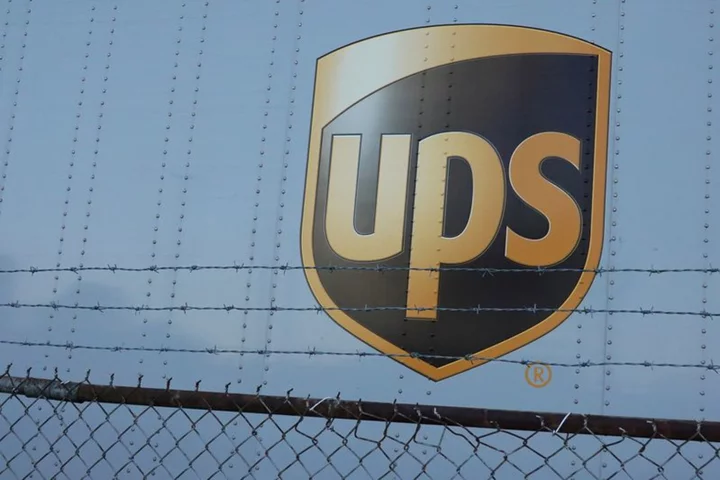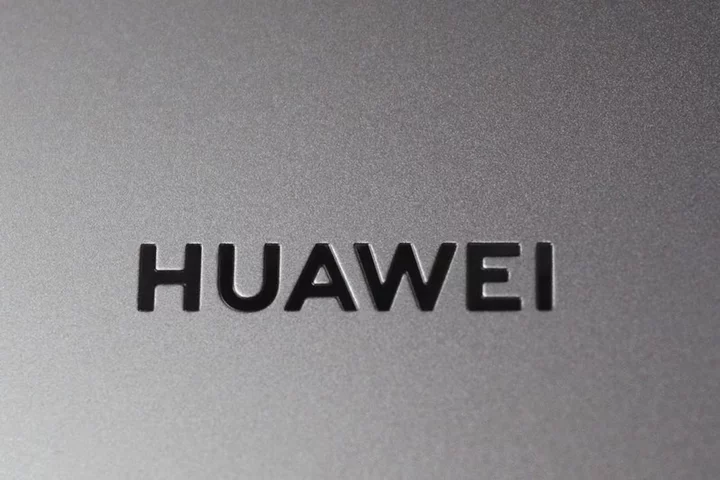By Lisa Baertlein and Priyamvada C
(Reuters) -United Parcel Service cut its 2023 revenue forecast for the second straight quarter on Thursday as delivery demand continued to soften ahead of the key holiday season, and its shares sank 5% to the lowest level in about three years.
The world's biggest package delivery firm is caught in a profit squeeze as it also battles to win back business lost during the summer's tumultuous U.S. labor talks, and to offset higher costs from the resulting five-year deal covering 340,000 Teamsters-represented workers in the United States.
"We expected conditions in the third quarter to be challenging, and they were," CEO Carol Tome said on a conference call.
The year-end holiday season is the busiest period for package delivery companies. UPS customers include retailers like Amazon.com, Walmart and Macy's, which are bracing for U.S. holiday sales that some analysts forecast could be the slowest since 2018.
Retail reported the biggest package volume decline in the third quarter, when all industry sectors retreated, UPS executives said.
UPS now expects U.S. package volume to be down in the low- to mid-single-digit percentages by December. It previously forecast flatish year-over-year volume by year end.
"It's weak, there's no way around it," said Jefferies analyst Stephanie Moore, who attributed the company's tempered outlook to market forces rather than unique UPS challenges.
Shares of rival FedEx also fell, declining 4% in midday trading.
UPS, seen as a bellwether for the U.S. economy, cut its full-year revenue forecast to $91.3 billion to $92.3 billion, down from its prior forecast of around $93 billion.
The company also reduced its projection for annual adjusted operating margin to between 10.8% and 11.3% versus 11.8% previously.
Some of the margin pressure comes from customers shifting to less lucrative ground-based delivery from faster and more profitable air-based services. E-commerce leader Amazon.com, the biggest UPS customer, is leading that trend, executives said.
The entire package delivery industry is fighting for market share as the pool of potential e-commerce deliveries shrinks. Reuters reported earlier this month that UPS and its rivals for the first time in years have been using discounts and other incentives to maintain and win market share, moves that could further pressure sector profits.
UPS said labor negotiations-related package diversions continued into the third quarter. It revised the total to 1.5 million average daily packages, up from 1.2 million previously.
Thus far, it has recouped 600,000 of those packages, with Amazon accounting for half of that regained business, executives said.
Meanwhile, UPS is investing with an eye on future growth.
The Atlanta-based company this quarter will spend more than $1 billion on healthcare specialist MNX Global Logistics and returns specialist Happy Returns to bolster package volumes, CEO Tome said.
UPS also has been cutting jobs, parking planes and leaning on package tracking and other technology to help offset falling e-commerce demand, weak export and industrial production and the cost hit from its new labor contract.
The company posted an adjusted profit of $1.57 per share in the quarter, topping analysts estimates by 5 cents, according to LSEG data.
(Reporting by Priyamvada C and Lisa Baertlein; Editing by Arun Koyyur, David Holmes and Bill Berkrot)









